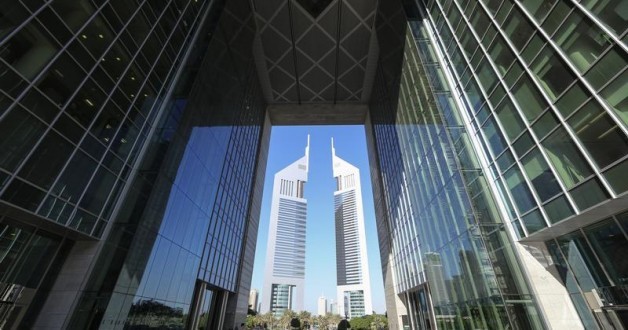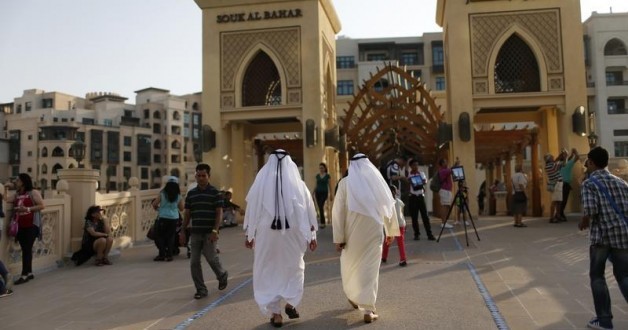Dubai’s Financial Trouble Warning Sign for the Global Economy
Post on: 20 Апрель, 2015 No Comment

Dec 2, 2009
Q1: What is Dubais role in the global economy?
A1: Over the last decade, the emirate of Dubai has seen a spectacular economic rise, as increasing oil prices brought strong economic growth to the Persian Gulf region and as the emirates open policies to foreign investment and trade sought to advance Dubai as the central hub of business in this booming region and beyond. Its rapid rise can be seen in its GDP growthwhich nearly doubled between 1995 and 2004 and grew at a reported 18 percent annually in the first half of the decade (nearly double Chinas annual growth over the same period). This growth and Dubais glimmering skylineincluding the worlds tallest skyscraperwere seen as symbols of a new model for economic development that many in the region and elsewhere sought to emulate. Yet as CSISs Scholl Chair noted in February 2009, the powerful convergence of forces that propelled Dubais risethe economic growth of the Gulf based on increasing oil prices, the surge in real estate values, and an increase in luxury tourism from a regional and global economic boom, etc.reversed quickly as the tsunami of the global financial crisis struck over the last few years, and instead placed Dubai at the intersection of the worlds most pronounced downward trends. But, while Dubais rise and reversal have both been pronounced, the emirate still represents only a small portion of the global economy, and much of the bank exposure related to its current problems resides outside of U.S. firms. In addition, it is important to note that Dubai is not a nation-state. Dubai is part of the United Arab Emirates (UAE), which is composed of six other emirates including Abu Dhabi that, with its great oil wealth, still has significant resources with which to help weather any economic downturn, if it chooses to intervene on Dubais behalf.
Q2: Why have Dubais problems had such a pronounced influence on global markets?
A2: Although Dubai is a small part of the global economy, the ramifications of its problems across stock markets show how jittery and uncertain the global economy remains as it tries to regain its footing in the wake of the worst economic crisis since the Great Depression. Dubais individual GDP or markets may not rank among the worlds largest, but concerns about the financial condition of the emirate and its key state-owned businesses raised wider questions about the status of other emerging markets and how much is known about their governments and their companies often opaque financial positions, especially in the wake of the crisis. For many companies owned or closely affiliated with emerging market governments, such as Dubai World, this incident raised questions about how far governments would go to protect these entities. More broadly, while many believe we have endured the worst of the economic crisis, there are serious questions about what shape the next global economy will take. What is clear is that old models, such as a world driven by highly indebted U.S. consumer spending and sharp imbalances among key trading partners, are not sustainablebut the future engines of growth remain uncertain. As the U.S. and other governments have incurred record postWorld War II debts to stave off a worse crisis, Dubai highlights the risk that national defaults or the collapse of a key interconnected global firm (as in the case of Lehman Brothers) could spook still-fragile markets and recovery efforts.
Q3: How will the responses of Dubai and the Middle East to the financial crisis shape their future?
A3: Much of the impact of Dubais current situation will depend on how it, the UAE, and other nations in the region react. Dubais rise was fueled by foreign investment, workers, and trade. Its ability to rebound and serve as the central hub for the region that its leaders envisioned will depend on its capacity to remain attractive to outside individuals and investment in the future. How the leaders of Dubai, Abu Dhabi, and the UAE treat foreign interests at this time will be critical to whether those interests will return to build its future.

In the wake of its current difficulties, some in the broader Middle East might stop viewing Dubai as a shining example and start seeing it as a cautionary tale. But it is important to get beyond oversimplifications. Some of Dubais financial, debt, and other policies that fueled bubbles and failed to promote transparency may hold important lessons for others to avoid. Yet there is also a risk that leaders in the Middle East and elsewhere may draw the wrong lessons from Dubais problems or utilize them to push back on needed reforms. Openness to trade and investment, along with reforms that promote transparency and stability in financial and economic systems, have helped fuel growth in other nations in the Middle East, Asia, and around the world. In the wake of the economic crisis and in the face of global economic competition, it will be important to separate the risky activities that may have fueled problems in Dubai and other financial markets from the solid and transparent open-market policies that can build the sustainable growth that will be critical to global recovery.
Steven P. Schrage holds the Scholl Chair in International Business at the Center for Strategic and International Studies in Washington, D.C.
Critical Questions is produced by the Center for Strategic and International Studies (CSIS), a private, tax-exempt institution focusing on international public policy issues. Its research is nonpartisan and nonproprietary. CSIS does not take specific policy positions. Accordingly, all views, positions, and conclusions expressed in this publication should be understood to be solely those of the author(s).
2009 by the Center for Strategic and International Studies. All rights reserved.














